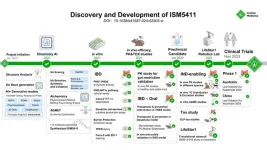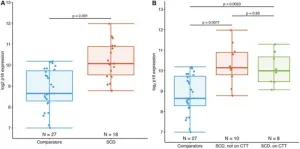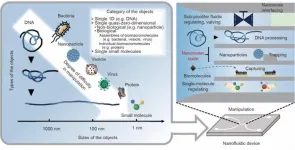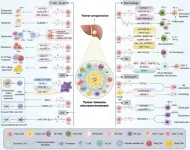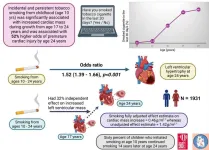Inflammatory bowel disease (IBD), consisting primarily of ulcerative colitis and Crohn’s disease, is a group of debilitating auto-immune disorders, which also increases the risk of colitis-associated cancer. Currently, the standard treatment for IBD mainly consists of anti-inflammatory drugs with limited efficacy and unavoidable side effects, thus millions of IBD patients seek alternative treatment options. Recent studies have correlated the success of mucosal healing with improved prognosis, making mucosal healing an increasingly accepted measure of disease activity in IBD patients.
Recently, scientists at Insilico Medicine utilized the comprehensive generative chemistry engine Chemistry42 to discover a novel gut-restricted PHD inhibitor that shows promise for repairing the intestinal mucosal barrier and regulating immune responses in IBD. The study, published in Nature Biotechnology, highlights the role of Chemistry42 and its submodules in supporting drug candidate design and optimization. The research underscores the potential of advanced AI technologies to accelerate the fulfillment of urgent clinical needs.
“After we published the first Nature Biotechnology paper in 2019, Insilico got its first big round of $37 million. This milestone enabled us to start our own drug discovery. To date, supported by the Pharma.AI platform, we have nominated 21 preclinical candidates, with 10 molecules receiving IND clearance for clinical trials. The most advanced IPF program has completed a phase IIa safety and preliminary efficacy study, and the discovery and development journal of this program also published in Nature Biotechnology. The PHD program further demonstrates Insilico’s ability to consistently advance valuable programs to the clinical stage. In this study, we took less than 12 months to nominate the preclinical candidate, and the paper provides a comprehensive account of our research process and preclinical validation results. During the review process of the paper, we also completed Phase 1 clinical trials in both Australia and China. We look forward to sharing clinical data with the industry in the near future" said Alex Zhavoronkov, the corresponding author of the paper, and Founder and CEO of Insilico Medicine.
Insilico initiated the research by focusing on developing therapies that not only reduce gut inflammation but promote epithelial repair. The researchers identified and prioritized HIF-PHD as a therapeutic target for IBD using PandaOmics, a commercially available AI engine for biology research. Then, Insilico employed Chemistry42 and its sub-modules, including generative chemistry, Alchemistry and ADMET analysis modules to design PHD inhibitors with desirable properties.
As a starting point, Insilico utilized Chemistry42’s structure-based generative chemistry module to initiate fragment growth by pre-establishing a priority fragment and six key pharmacological points based on the reported PHD complex structures. They generated and screened hit compounds with promising activity by enhancing the novelty and synthetic availability filters.
Scientists then optimized the properties of the potential candidates using Structure-Activity Relationship (SAR) analysis. They evaluated the generated compounds’ potency through Alchemistry to compute binding free-energy estimates for PHD2-ligand complexes and collected the key predicted properties like solubility and permeability via ADMET module to acquire a candidate with a minimized systemic ex2024posure. Ultimately, ISM5411, a potent PHD-specific inhibitor, was obtained.
The compound exhibits gut-restrictive pharmacokinetic (PK) profiles and favorable safety in preclinical studies. It demonstrated significant anti-colitis activity at lower doses through restoration of intestinal barrier function and reduction of gut inflammation in multiple experimental colitis models, without the systemic side effects typically associated with PHD inhibition. Based on these studies, ISM5411 was nominated as a preclinical candidate compound for the IBD program after approximately 115 molecules were synthesised and screened within 12 months from project initiation.
At the time of this publication, two Phase 1 clinical trials of ISM5411 for the treatment of IBD are being conducted in parallel in Australia and China. The ongoing studies are designed to evaluate the safety, tolerability, pharmacokinetics and food effects of ISM5411 at increasing oral doses in healthy subjects, with the last subject out in both studies. To further evaluate ISM5411 in wider populations, Insilico plans to conduct global multi-center proof-of-concept efficacy studies in patients with ulcerative colitis.
In addition to this paper, Insilico published a Nature Biotechnology paper presenting the entire R&D journey from AI algorithms to Phase II clinical trials of ISM001_055, the company's lead drug pipeline with AI-discovered target and AI-designed structure in early 2024. Following that, Insilico has recently announced positive preliminary results from a Phase IIa trial, where ISM001_055 showed favorable safety and tolerability across all dose levels, as well as dose-dependent response in forced vital capacity (FVC), after only 12 weeks of dosage.
In 2016, Insilico first described the concept of using generative AI for the design of novel molecules in a peer-reviewed journal, which laid the foundation for the commercially available Pharma.AI platform. Since then, Insilico keeps integrating technical breakthroughs into Pharma.AI platform, which is currently a generative AI-powered solution spanning across biology, chemistry, medicine development and science research. Powered by Pharma.AI, Insilico has nominated 21 preclinical candidates in its comprehensive portfolio of over 30 assets since 2021 and has received IND clearance for 10 molecules.
About Insilico Medicine
Insilico Medicine, a global clinical-stage biotechnology company powered by generative AI, connects biology, chemistry, and clinical trial analysis using next-generation AI systems. The company has developed AI platforms that utilize deep generative models, reinforcement learning, transformers, and other modern machine learning techniques for novel target discovery and generating novel molecular structures with desired properties. Insilico Medicine is developing breakthrough solutions to discover and develop innovative drugs for cancer, fibrosis, immunity, central nervous system diseases, infectious diseases, autoimmune diseases, and aging-related diseases.
www.insilico.com
References
[1] Fu, Y. et al. Intestinal mucosal barrier repair and immune regulation with an AI-developed gut-restricted PHD inhibitor. Nat. Biotechnol. https://doi.org/10.1038/s41587-024-02503-w
[2] Ren, F. et al. A small-molecule TNIK inhibitor targets fibrosis in preclinical and clinical models. Nat. Biotechnol. https://doi. org/10.1038/s41587-024-02143-0 (2024).
END
